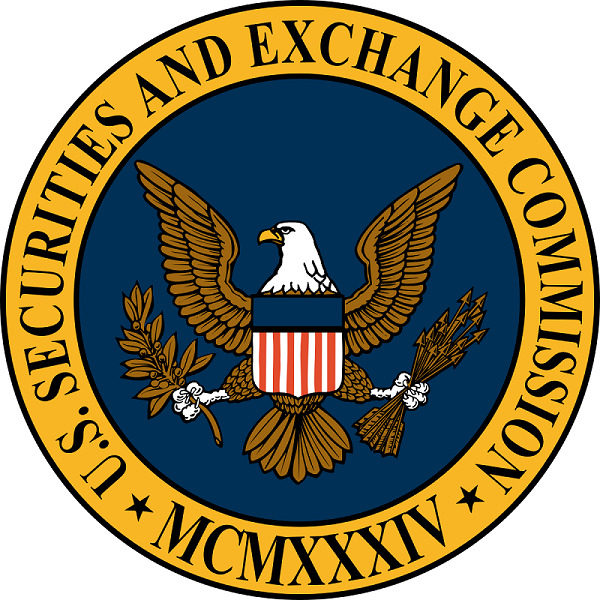The SEC’s Friday decision to deny Coinbase Global’s petition for new rules in the digital asset sector marks a pivotal moment in the ongoing crypto regulatory debate.
The 3-2 vote by the five-member commission denial signifies a divergence in perspective regarding the necessity of additional crypto regulations.
Chairman Gary Gensler’s stance has been consistent – He firmly believes that the existing regulatory framework adequately governs crypto asset securities.
Gensler’s position emphasizes that further regulation isn’t required to oversee the crypto market, which played a crucial role in the commission’s decision to reject Coinbase’s plea for new rules.
“In my opinion, the existing securities regime appropriately governs crypto asset securities,” Gensler said in a December 15 statement.
This position aligns with the commission’s standpoint to deny Coinbase’s petition and highlights the confidence in the current regulatory measures.
Gensler elaborated further on the SEC’s rationale for denying Coinbase’s request.
Also, he pointed out current laws and regulations already governing the crypto market, emphasizing the ongoing efforts within the SEC regarding rules about digital assets.
Moreover, he stressed the significance of the commission’s discretion in determining its rule-making priorities.
The SEC’s Position is Rooted in Time
The SEC’s use of the Howey Test, a mechanism for determining which transactions qualify as “investment contracts,” has been a key in assessing digital securities.
Gensler iterated this point and referenced the Supreme Court case “Reves vs. Ernst & Young” to underscore Congress’s intent to regulate investments irrespective of their form or nomenclature.
Additionally, Gensler’s statement on December 15 reaffirmed, “Therefore, if crypto assets resemble an investment contract in their offering and sale, and if entities facilitate transactions involving crypto asset securities, the federal securities laws are indeed applicable.”
The denial of Coinbase’s petition by the SEC underscores their confidence in the existing regulatory framework and reiterates their approach to regulating crypto assets based on established laws and precedents.
The decision will significantly impact market supervision and future cryptocurrency laws.
It reaffirms the SEC’s commitment to maintaining regulatory control over the rapidly evolving digital asset landscape without additional legislative measures.
Coinbase Plans a Challenge
In July 2022, Coinbase made a formal request to the SEC, seeking rules to regulate securities traded through digital means, urging for clear guidelines to determine which digital assets fall under the category of securities.
Following this, Coinbase initiated legal action against the SEC in late April, aiming to prompt a response from the agency regarding its petition.
Subsequently, Coinbase informed a federal appeals court in Philadelphia about its intentions to challenge the SEC’s denial.
Throughout 2022, Coinbase advocated for the SEC to establish specific regulations tailored to the crypto industry, arguing that the existing securities laws lacked adequacy.
Coinbase compelled the SEC to address their petition through a judicial appeal.
However, the court declined to enforce action upon the agency, considering the SEC’s commitment to respond to Coinbase’s petition.
This dispute marked the latest episode in an ongoing conflict between the crypto sector and the primary U.S. market regulator.
The SEC has consistently maintained that most crypto tokens qualify as securities and are under its jurisdiction.
It has pursued legal action against numerous crypto firms, including Coinbase, alleging that several crypto tokens should be securities for trading on their platforms.
Crypto companies have expressed the need for clear guidelines from the SEC regarding digital asset classification.
In a series of messages posted on “X” (formerly known as Twitter), Paul Grewal, Coinbase’s chief legal officer, indicated the company’s intention to take further legal steps against the SEC.
“Later today, we’ll once again seek the Third Circuit’s assistance
in challenging the SEC’s failure to fulfill its obligations,” Grewal stated, referring to Coinbase’s previous lawsuit against the SEC.
Coinbase filed the lawsuit with the 3rd U.S. Circuit Court of Appeals in Philadelphia to prompt the agency’s decision on its petition.
Grewal also expressed gratitude towards Commissioners Peirce and Uyeda for their dissent.
“We should collaborate on creating laws and regulations that benefit consumers and drive U.S. innovation rather than engaging in legal battles over constantly shifting legal positions,” added Grewal.





